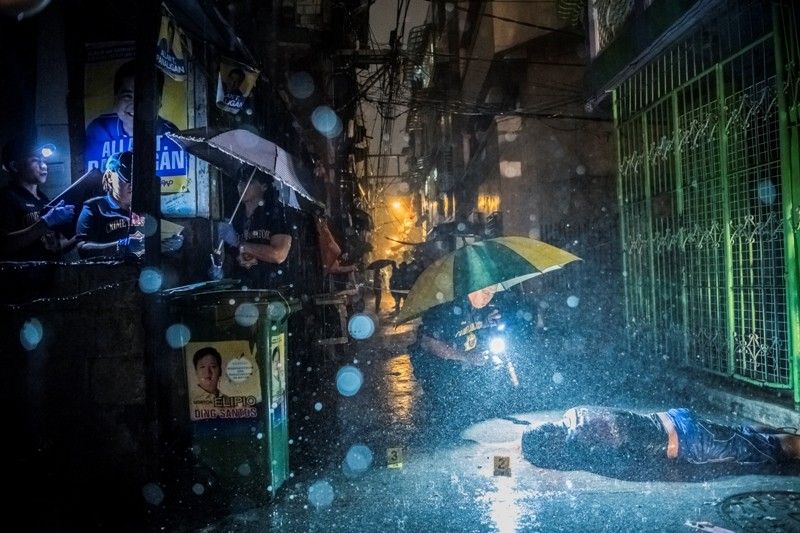Analyst: US could pull out aid if military joins drug war

MANILA, Philippines — Involving the military in the government's campaign against the illicit drug trade could force the United States (US) to suspend military aid in the country, an analyst said.
Earlier this year, President Rodrigo Duterte said that he wants to remove the police from the drug war and suggested that he will use the military instead.
Murray Hiebert, senior adviser and deputy director of the Southeast Asia Program at the Center for Strategic and International Studies, noted that the Leahy amendment bars the US Departments of Defense and State from providing equipment or training to foreign military units that commit "gross human rights violations."
"If the military were to join the drug war and participate in extra-judicial killings, congressional regulations could force the United States to suspend military aid and training to the units involved," Hiebert said in an article published on CogitAsia, the blog of the CSIS Asia Program.
This would introduce complications to the bilateral military relationship between the Philippines and the US that could take decades to resolve.
The military joining the drug war would mainly affect the army and not the navy, air force or coast guard.
The Leahy amendment would come into effect primarily against military units that can be linked to killings and abuses if the Armed Forces will get involved in the drug war.
"That does not mean, however, that killings by the military would not have a broader negative impact on Capitol Hill and prompt Congress to be reluctant to approve significant funding for military ties with the Philippines," the analyst said.
The flagship annual Balikatan exercises between American and Filipino troops would be affected. The joint military exercises have been running for three decades.
The Leahy amendment could also affect International Military Education and Training, which is intended to train the next generation of military officers and may also impact Foreign Military Financing grants to buy US defense equipment.
In September last year, US Sen. Patrick Leahy, author of the Leahy amendment, warned that the American government may take action if the extrajudicial killings and state-sanctioned violence in the Philippines will continue.
READ: US senators reconsider assistance to Philippines amid drug war
The American senator authored the amendment "to ensure that the United States is not complicit in human rights violations committed by forces that might receive U.S. assistance, and to encourage foreign governments to hold accountable perpetrators of such abuses.”
According to Hiebert, the Philippines received $79 million in military assistance focused on boosting the capacity of the Navy, Coast Guard and Air Force.
The country also received $1 billion of military equipment from the US over the past four years. Last year, the Philippines received $42 million under the US maritime Security Initiative.
Hiebert noted that the military appears to be steering clear from the drug war but some officers have said that they would comply if asked.
Duterte has suspended the drug war in place of an internal cleansing within the Philippine National Police or what police chief Ronald dela Rosa dubbed as the "war on scalawags."
Dela Rosa said that the resumption of the drug war would depend on the president if he sees that the PNP is done with its internal cleansing.
- Latest
- Trending





























